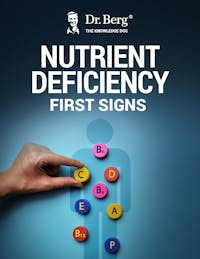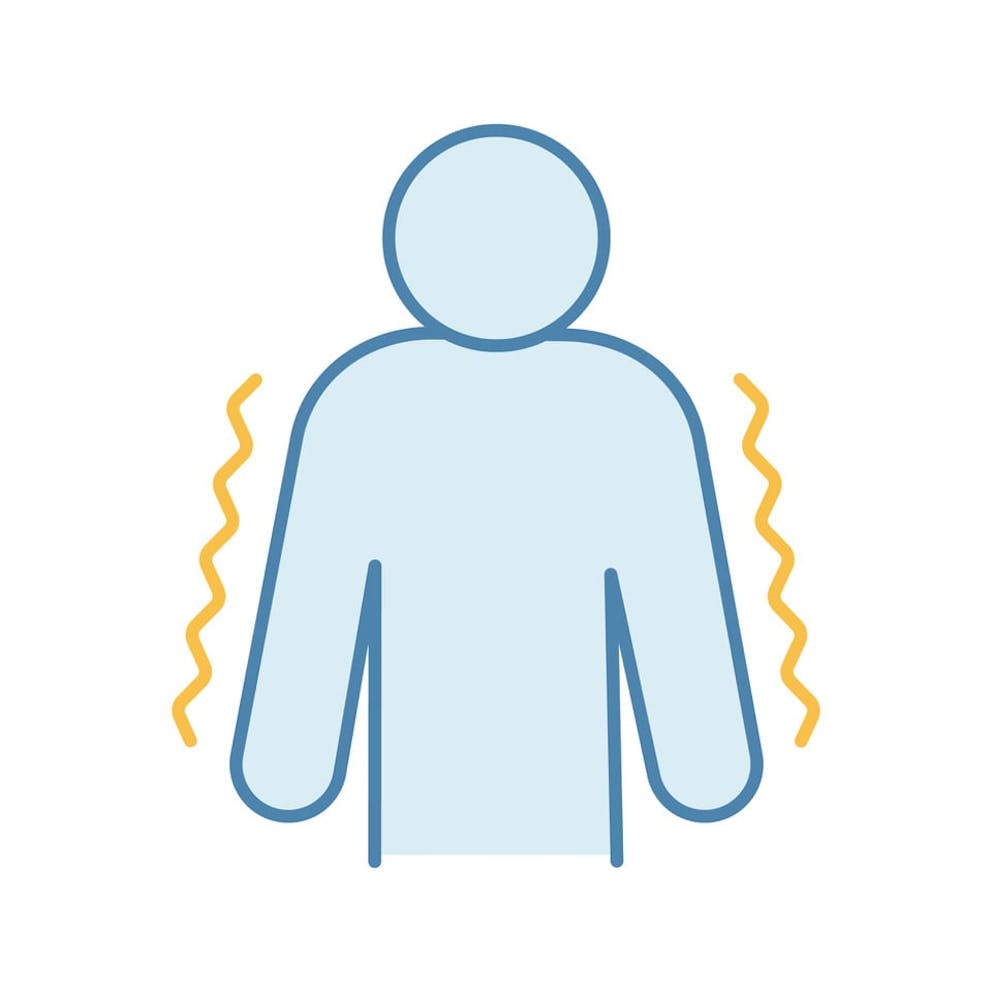Muscle Twitching After Starting Keto

The First Signs of a Nutrient Deficiency
Learn how to recognize early symptoms related to specific nutrient deficiencies
Receive a downloadable list of early indicators your body is lacking key nutrients

The First Signs of a Nutrient Deficiency
Learn how to recognize early symptoms related to specific nutrient deficiencies
Receive a downloadable list of early indicators your body is lacking key nutrients

The First Signs of a Nutrient Deficiency
Learn how to recognize early symptoms related to specific nutrient deficiencies
Receive a downloadable list of early indicators your body is lacking key nutrients

The First Signs of a Nutrient Deficiency
Learn how to recognize early symptoms related to specific nutrient deficiencies
Receive a downloadable list of early indicators your body is lacking key nutrients

The First Signs of a Nutrient Deficiency
Learn how to recognize early symptoms related to specific nutrient deficiencies
Receive a downloadable list of early indicators your body is lacking key nutrients

The First Signs of a Nutrient Deficiency
Learn how to recognize early symptoms related to specific nutrient deficiencies
Receive a downloadable list of early indicators your body is lacking key nutrients

The First Signs of a Nutrient Deficiency
Learn how to recognize early symptoms related to specific nutrient deficiencies
Receive a downloadable list of early indicators your body is lacking key nutrients

The First Signs of a Nutrient Deficiency
Learn how to recognize early symptoms related to specific nutrient deficiencies
Receive a downloadable list of early indicators your body is lacking key nutrients

The First Signs of a Nutrient Deficiency
Learn how to recognize early symptoms related to specific nutrient deficiencies
Receive a downloadable list of early indicators your body is lacking key nutrients

The First Signs of a Nutrient Deficiency
Learn how to recognize early symptoms related to specific nutrient deficiencies
Receive a downloadable list of early indicators your body is lacking key nutrients

The First Signs of a Nutrient Deficiency
Learn how to recognize early symptoms related to specific nutrient deficiencies
Receive a downloadable list of early indicators your body is lacking key nutrients

The First Signs of a Nutrient Deficiency
Learn how to recognize early symptoms related to specific nutrient deficiencies
Receive a downloadable list of early indicators your body is lacking key nutrients

The First Signs of a Nutrient Deficiency
Learn how to recognize early symptoms related to specific nutrient deficiencies
Receive a downloadable list of early indicators your body is lacking key nutrients

The First Signs of a Nutrient Deficiency
Learn how to recognize early symptoms related to specific nutrient deficiencies
Receive a downloadable list of early indicators your body is lacking key nutrients

The First Signs of a Nutrient Deficiency
Learn how to recognize early symptoms related to specific nutrient deficiencies
Receive a downloadable list of early indicators your body is lacking key nutrients

The First Signs of a Nutrient Deficiency
Learn how to recognize early symptoms related to specific nutrient deficiencies
Receive a downloadable list of early indicators your body is lacking key nutrients

The First Signs of a Nutrient Deficiency
Learn how to recognize early symptoms related to specific nutrient deficiencies
Receive a downloadable list of early indicators your body is lacking key nutrients

The First Signs of a Nutrient Deficiency
Learn how to recognize early symptoms related to specific nutrient deficiencies
Receive a downloadable list of early indicators your body is lacking key nutrients

The First Signs of a Nutrient Deficiency
Learn how to recognize early symptoms related to specific nutrient deficiencies
Receive a downloadable list of early indicators your body is lacking key nutrients

The First Signs of a Nutrient Deficiency
Learn how to recognize early symptoms related to specific nutrient deficiencies
Receive a downloadable list of early indicators your body is lacking key nutrients

The First Signs of a Nutrient Deficiency
Learn how to recognize early symptoms related to specific nutrient deficiencies
Receive a downloadable list of early indicators your body is lacking key nutrients

The First Signs of a Nutrient Deficiency
Learn how to recognize early symptoms related to specific nutrient deficiencies
Receive a downloadable list of early indicators your body is lacking key nutrients

The First Signs of a Nutrient Deficiency
Learn how to recognize early symptoms related to specific nutrient deficiencies
Receive a downloadable list of early indicators your body is lacking key nutrients

The First Signs of a Nutrient Deficiency
Learn how to recognize early symptoms related to specific nutrient deficiencies
Receive a downloadable list of early indicators your body is lacking key nutrients

The First Signs of a Nutrient Deficiency
Learn how to recognize early symptoms related to specific nutrient deficiencies
Receive a downloadable list of early indicators your body is lacking key nutrients

The First Signs of a Nutrient Deficiency
Learn how to recognize early symptoms related to specific nutrient deficiencies
Receive a downloadable list of early indicators your body is lacking key nutrients

The First Signs of a Nutrient Deficiency
Learn how to recognize early symptoms related to specific nutrient deficiencies
Receive a downloadable list of early indicators your body is lacking key nutrients

The First Signs of a Nutrient Deficiency
Learn how to recognize early symptoms related to specific nutrient deficiencies
Receive a downloadable list of early indicators your body is lacking key nutrients

The First Signs of a Nutrient Deficiency
Learn how to recognize early symptoms related to specific nutrient deficiencies
Receive a downloadable list of early indicators your body is lacking key nutrients

The First Signs of a Nutrient Deficiency
Learn how to recognize early symptoms related to specific nutrient deficiencies
Receive a downloadable list of early indicators your body is lacking key nutrients

The First Signs of a Nutrient Deficiency
Learn how to recognize early symptoms related to specific nutrient deficiencies
Receive a downloadable list of early indicators your body is lacking key nutrients
I often hear from people who begin to notice muscle twitching after starting keto. A few days in, they'll have little spasms by their eye or notice their arm starts to twitch.
So what is that all about? What causes these little involuntary spasms?
Twitches are a common side effect of transitioning into ketosis. Along with cramps, flu-like symptoms, right shoulder pain, and more, they are one of the symptoms that often pop up in the early days of going low-carb.

But not to worry – they are usually a sign of a simple imbalance in the body. It usually isn't something of large concern, and a few simple fixes can help you to get rid of them.
Read on to learn more about these twitches and what you can do about them.
I will cover:
First, let's look at what is going on in your body to produce these odd, random spasms.
What are these twitches?
You might be familiar with that odd feeling when a part of your body starts to do an involuntary little twitch. These are small, pulsating contractions that can happen anywhere on the body. The technical word for it is tetany.
These are due to little nerve impulses. They can seem very random, and they often happen below the eye or in your arm.

The top two causes of tetany (twitches)
So what causes tetany (involuntary twitching) while on the low-carb ketogenic diet?
Here are the top two culprits that are usually behind this problem:
1. pH imbalance
A blood pH that is too alkaline (called alkalosis) can be one of the reasons for muscle twitches. Learn all about alkalosis here.
When the pH of your blood goes too far in one direction and becomes too alkaline, calcium can start to build up on your nerves and affect their impulses. That interference with proper nerve conduction can lead to muscle cramps, spasms, and twitching.
If you've just started doing the keto diet, this is the less likely reason for muscle twitches out of the two options. That is because ketones are acidic, so chances are your pH isn't the problem. When starting the ketogenic diet and getting into ketosis, you'll be producing ketones and boosting acid levels.
That being said, addressing a pH imbalance will fix the twitching muscle problem for some people.

What to do about it
If your twitches are linked to your pH, then there are two things that can help a lot. Try adding in apple cider vinegar or kombucha tea. Both of these are natural acidifiers, and they can often help with muscle twitching.
2. Electrolyte imbalance
The most likely cause of twitches after starting the ketogenic diet is electrolyte deficiencies.
There is one key group of nutrients your body will end up needing more of when you start doing keto. And that is electrolytes. Electrolytes are electrically charged minerals that play a wide range of key roles in body function. This is especially true when it comes to nerve and muscle function.
When you begin to eat a low-carb diet, the total volume of fluid in your body goes down. And as electrolytes are mainly stored in that fluid, you can end up with low levels of electrolytes. So you need to be careful to increase your intake of important minerals like potassium, magnesium, and calcium.
Learn more about the link between electrolytes and the keto diet here.
A lack of electrolyte minerals like magnesium and calcium (which could be due to low potassium) is the most likely cause of tetany and muscle issues on keto. If you are doing the ketogenic diet but are not taking electrolytes or are not eating plenty of mineral-rich vegetables, that is probably why you have been noticing this symptom.
Lack of electrolytes is also behind many of the other common ketogenic diet side effects or "keto flu" symptoms. For example, too little potassium and magnesium can also be the problem behind muscle cramps.

What to do about it
The best solution is to make sure your body has plenty of electrolyte minerals to work with. Boost your vegetable intake, especially leafy green veggies like kale, spinach, chard, broccoli, and others.
Alternatively, take some electrolytes as a supplement. Either of those two options should be able to help you resolve your muscle twitch problem.
Go here to learn more about the top two causes of muscle and eye spasms.
Other common keto side effects
Tetany is just one of many possible ketogenic diet side effects. When you just start off with the keto diet, your body has to adjust to a new way of burning fuel. This is called keto adaptation, and it takes a bit of time.
During this phase, it is not uncommon to experience a few side effects and symptoms.
Some of the most common symptoms include:
Muscle cramps.
Palpitations.
Bad breath.
Fatigue.
Right shoulder pain.
Constipation.
Bloating.
Rash.
Watch my video here to learn more about common side effects and what to do about them.

Why you need to eat your veggies
Having a particularly hard time with twitching or other side effects?
One reason why your symptoms might be worse is that you aren't eating a wide range of healthy, keto-approved foods.
Sometimes, people skip out on important foods when beginning to get into ketosis. It is common for people to avoid veggies, for example, in an attempt to lower their carb intake. But the thing is, you need veggies to stay healthy while in ketosis. They will help you get the most out of this low-carb diet.
Veggies are some of the top foods you can't forget on keto. They'll help you with your muscle problems, including twitching, and they'll help the rest of your body feel better at the same time.
Vegetables are an important source of the nutrients your body needs to keep everything running smoothly. So don't forget your veggies, and make sure to pack your diet full of them.

Tips for easing keto adaptation
Your body must develop new cellular machinery for using ketones and burning fat. So in order to get used to being in ketosis, the body has to adapt.
And as I mentioned above, this can lead to some uncomfortable symptoms. Luckily, if you run into any of these issues the symptoms are all easily handled.
If you are going through this transition, here are some resources to help:
The bottom line
Oftentimes, after the first few days of starting the ketogenic lifestyle a variety of symptoms can pop up. These can range from flu-like feelings to leg cramps to fatigue... to odd little twitches called tetany.
If you are getting muscle twitches, not to worry. There is usually one of two different things to blame. And there are simple fixes to handle the issue.
The top two reasons for tetany are:
pH imbalance. Being too alkaline can produce this side effect. If a pH issue is at the root of your problem, add apple cider vinegar or kombucha tea to your diet to help.
Low electrolytes. This is the most common cause of twitches. They are usually related to low levels of minerals like magnesium, calcium, or potassium. Add in more electrolytes through a supplement or up your intake of nutrient-rich vegetables.
Much of the time, these side effects and symptoms can be greatly helped by eating more veggies. Veggies provide you with the nutrients you need to keep things running smoothly while getting used to low-carb ketosis.
Have you ever had these symptoms? What helped you to get rid of them? Share any questions or comments you have on twitching, keto adaptation, or more by leaving me a comment below.
Up next: -
Disclaimer: Our educational content is not meant or intended for medical advice or treatment.
Editor’s Note: This post has been updated for quality and relevancy.
Previous blog
Hydrogen Peroxide Mouthwash: Benefits and RecipeTags

Popular
08/21/2024
55.7K views
02/23/2025
46.8K views
11/18/2024
281.1K views
03/18/2024
11/21/2022




